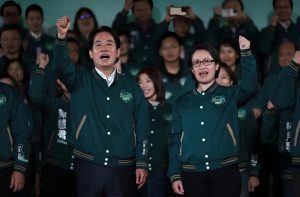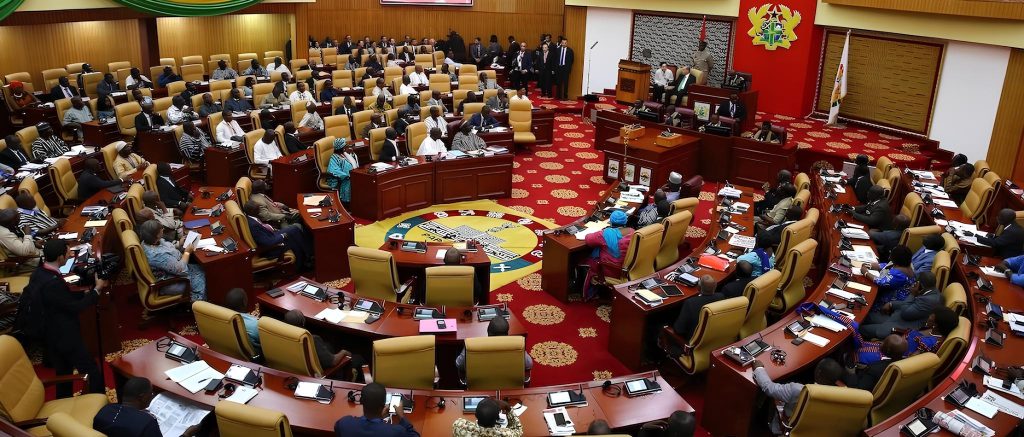








Ghana is currently at a critical juncture as it navigates the international and domestic responses to the proposed “Human Sexual Rights and Human Values Bill,” which was unanimously adopted by Members of Parliament on February 28th.


Welcome back to Africa Brief, where we take a look at the unfolding situation in Ghana regarding the controversial “Human Sexual Rights and Human Values Bill,” which threatens to redefine the nation’s stance on LGBTQ rights and its economic future. This proposed legislation, unanimously adopted by Ghana’s Members of Parliament on February 28th, seeks to criminalize LGBTQ identities, potentially imposing jail terms of up to five years for individuals engaging in or promoting LGBTQ activities.
Ghana’s president, Nana Akufo-Addo, has not yet signed into law a bill that would make identifying as lesbian, gay, bisexual, or transgender a criminal offense that carries strict consequences for anyone breaking the law.
The stringent “Human Sexual Rights and Human Values Bill,” as it was officially termed during the unanimous vote to adopt it by MPs on February 28th, imposes a jail term of up to three years for anyone identifying as LGBTQ. Those found to be promoting LGBTQ activities or engaging in public displays of affection could face up to a five year incarceration.
The new legislation would bring with it the threat of a significant economic loss to the country. Ghana stands to lose $3.8 billion in World Bank financing over the next five to six years if President Akufo-Addo officially signs the bill into law. Ghana only last year secured International Monetary Fund (IMF) loan funding and could lose more than $850 million this year alone. This lack of monetary aid would further cripple the nation as it reaches to emerge from a bitter economic crisis.
An IMF finance ministry document was released in early March warning that if the bill does become law, it would derail funding. According to the document, the IMF’s internal policies prohibit discrimination based on personal characteristics. Further recommendations from the IMF included suggestions that Ghana seek aid from more conservative nations if the bill goes into effect.
International scrutiny about the new legislation has also mounted. According to a statement released by the U.S. Department of State, the United States is “deeply troubled” by the bill which “seeks to criminalize any person who simply identifies as LGBTQI+, as well as any friend, family, or member of the community who does not report them.” The Department further asserted that the bill “would also undermine Ghana’s valuable public health, media and civic spaces, and economy.”
The statement included that the “United States echoes the call by those Ghanaians who have urged a review of the constitutionality of the bill to protect the rights of all individuals in Ghana.”
President Akufo-Addo released a statement on social media stating that a “challenge has been mounted at the Supreme Court by a concerned citizen to the constitutionality of the proposed legislation.” He further stated that he felt it best to “await the decision of the Court before any action is taken.”
While the president had previously said he would sign the bill if the majority of Ghanaians wanted him to do so, he has since expressed a willingness to assure members of the foreign diplomatic corps that the nation is one with a firm commitment to uphold human rights.
The president acknowledged that the new legislation had “raised considerable anxieties in certain quarters of the diplomatic community and amongst some friends of Ghana.” Fears that the nation could be “turning her back on her, hither to, enviable, long standing record on human rights observance and attachment to the rule of law” were addressed as well. Akufo-Addo added that “no such back-sliding will be contemplated or occasioned.”
Written By: GABRIEL RAMIREZ
Written By: DILARA SAHIN
Written By: DILRUBA YILMAZ
Written By: NILAY CELIK
Written By: ELDANIZ GUSSEINOV
Written By: JOSEF SCHOEFL
Written By: SELCAN BEDIRHANOGLU
Written By: FATIH CEYLAN
FA’s flagship evening newsletter guilding you through the most important world streis ofthe day. Delivered weekdays.